12 Best Job Sites In Saudi Arabia To Reach Top Talent
.avif)
12 Best Job Sites In Saudi Arabia To Reach Top Talent
Finding a job can be challenging, no matter where you are. Job seekers in the KSA may face unique challenges. There is much to learn about the recruitment process in the KSA before beginning your job search. This can make the process seem overwhelming, especially for those applying abroad. You may have heard of candidates who travelled to the KSA for roles that did not match expectations or were left without follow-up after initial offers. Additionally, understanding the recruitment process in the UAE can also be beneficial, especially if you’re exploring opportunities across the GCC. While each country has its own regulations and norms, learning the similarities and differences in recruitment procedures can give you a competitive edge. This article provides practical steps to support your job search in the KSA and highlights credible platforms to help you connect with suitable opportunities.
Run payroll in a few steps, manage teams globally, and stay compliant with Cercli’s global HR system.
12 Best Job Sites In Saudi Arabia To Reach Top Talent
Hiring skilled professionals in Saudi Arabia has become easier due to the growth of reliable online platforms. These platforms now connect employers with candidates from various backgrounds and sectors.
This development aligns with Saudi Arabia’s focus on workforce expansion and economic diversification, making it easier for companies to recruit in all industries, including areas such as:
- Healthcare
- Engineering
- Finance
1. LinkedIn

LinkedIn is widely used in Saudi Arabia to recruit professionals, particularly for mid to senior-level roles. Companies can advertise vacancies, search for candidates with specific skills, and connect with professionals in fields such as finance, IT, and engineering.
LinkedIn offers several pricing tiers, allowing employers to tailor their approach and reach local and international applicants.
2. Indeed
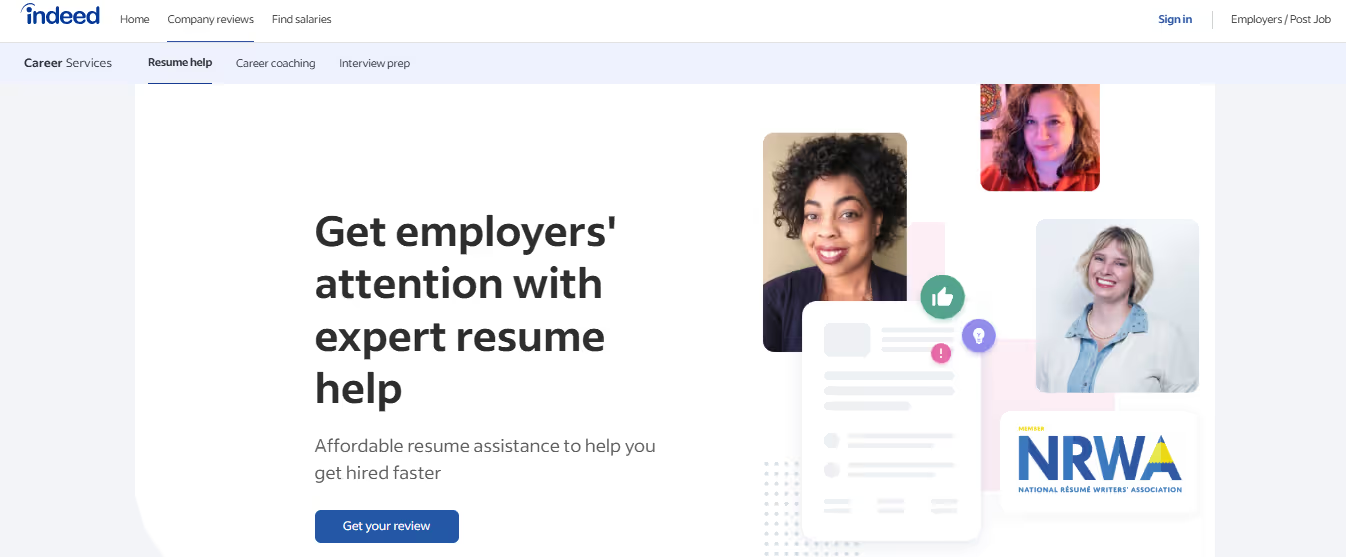
Indeed is a widely used global job site with a strong presence in Saudi Arabia. Employers can post jobs for free or pay to have listings featured more prominently. Job seekers can search for roles, upload their CVs, and explore employers without charge, which helps companies attract more applicants.
3. Mihnati
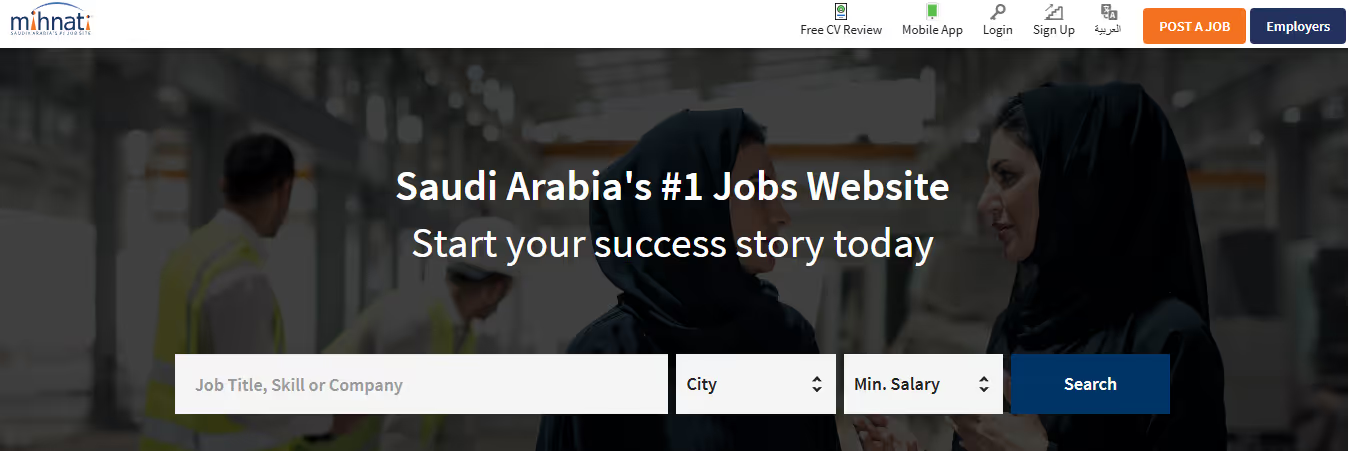
Founded in 2006, Mihnati.com is a recruitment platform focused on the Saudi market. It is frequently used to support national hiring efforts. Over 720,000 job seekers and 9,000 employers have used the site, with vacancies ranging from entry-level to senior positions across various sectors.
4. Bayt (Saudi Arabia)
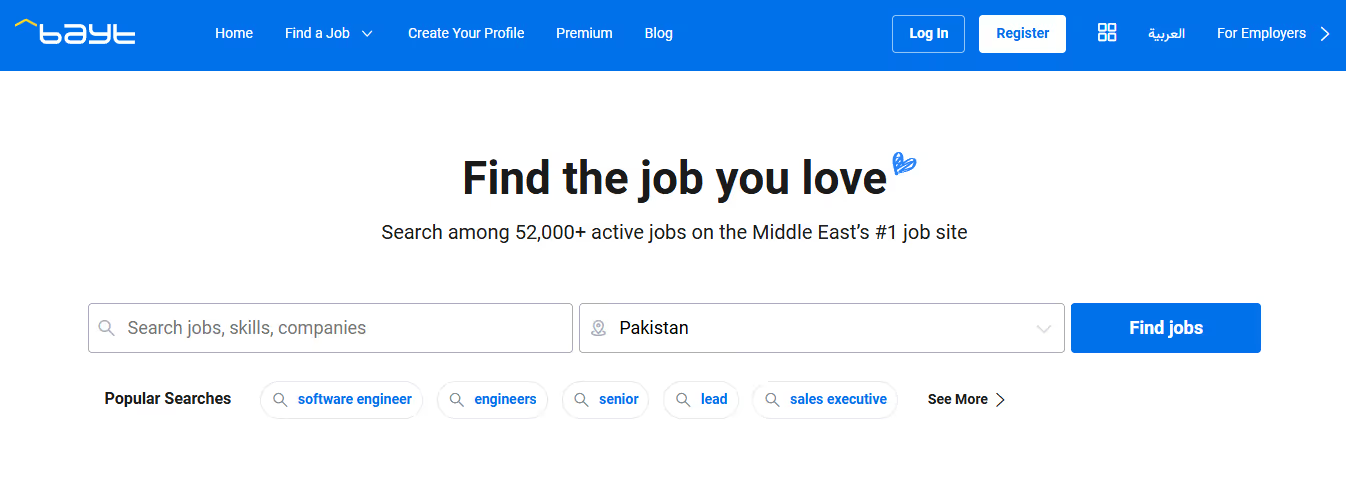
Bayt is a regional job platform used across the Middle East, with a strong presence in Saudi Arabia. Employers can post roles and access a broad pool of candidates with experience in local industries. It also includes tools to refine candidate searches in areas such as construction, finance, and IT.
5. GrabJobs
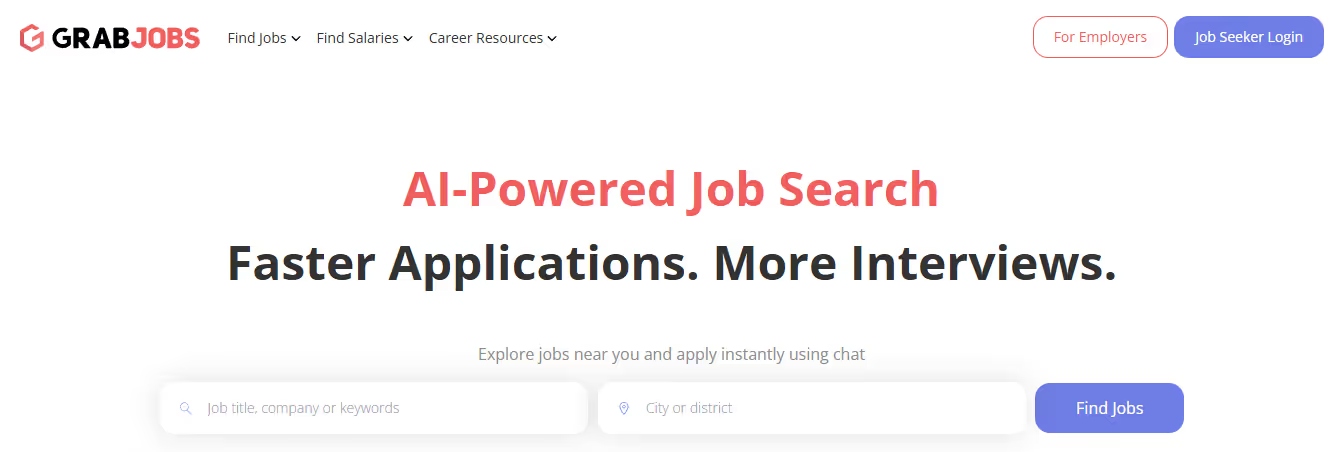
GrabJobs offers tools that automate steps such as:
- Candidate sourcing
- Screening
- Early-stage interviews
It is used by companies in Saudi Arabia seeking to simplify their hiring process. Job seekers can apply quickly and create profiles with minimal effort, making the process more straightforward. It supports both local and international recruitment.
6. Akhtaboot

Akhtaboot is a regional job board active in Saudi Arabia and other parts of the Middle East. Companies can post vacancies and reach candidates across a variety of sectors. Its regional presence helps employers find candidates with local knowledge and Arabic language skills.
7. Wzayef
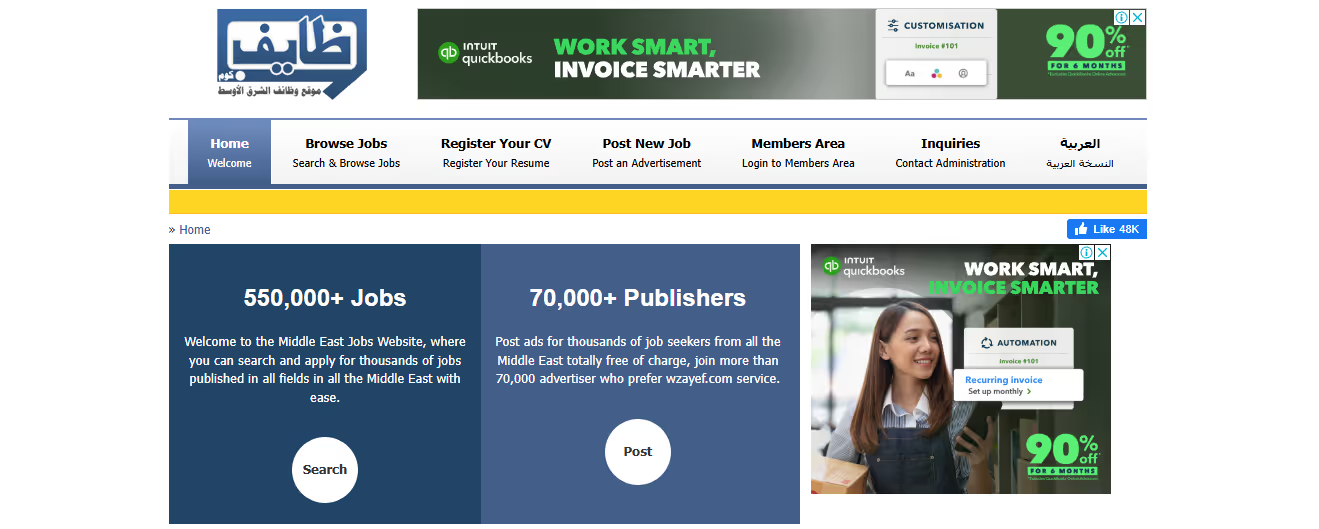
Wzayef.net is a recruitment site used in Saudi Arabia and neighbouring Arab countries. It provides features such as daily job listings and an applicant tracking system. Employers can manage multiple postings, while job seekers can refine their search using filters. The site is easy to use and widely adopted in the region.
8. ZenHR
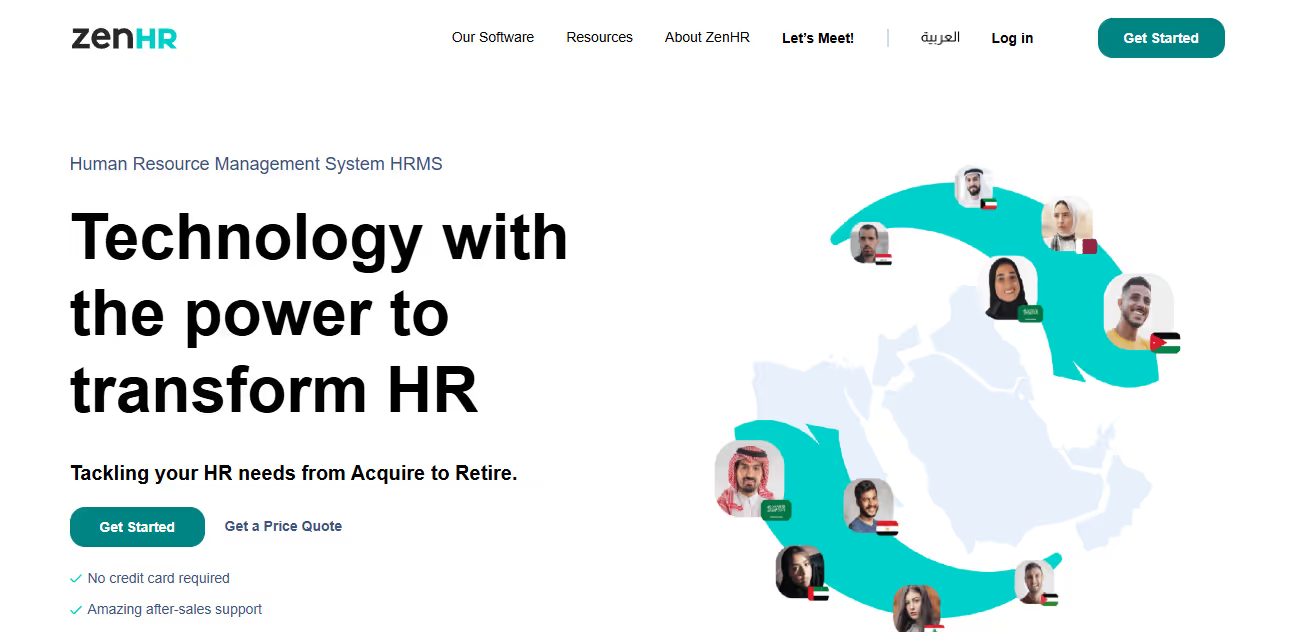
ZenHR is an online HR and recruitment platform that supports functions such as hiring and onboarding. It includes tools for applicant tracking, job board integration, and CV screening. These tools help HR teams streamline recruitment. Companies across the region, including Saudi Arabia, use ZenHR to manage hiring more efficiently.
9. Naukri Gulf
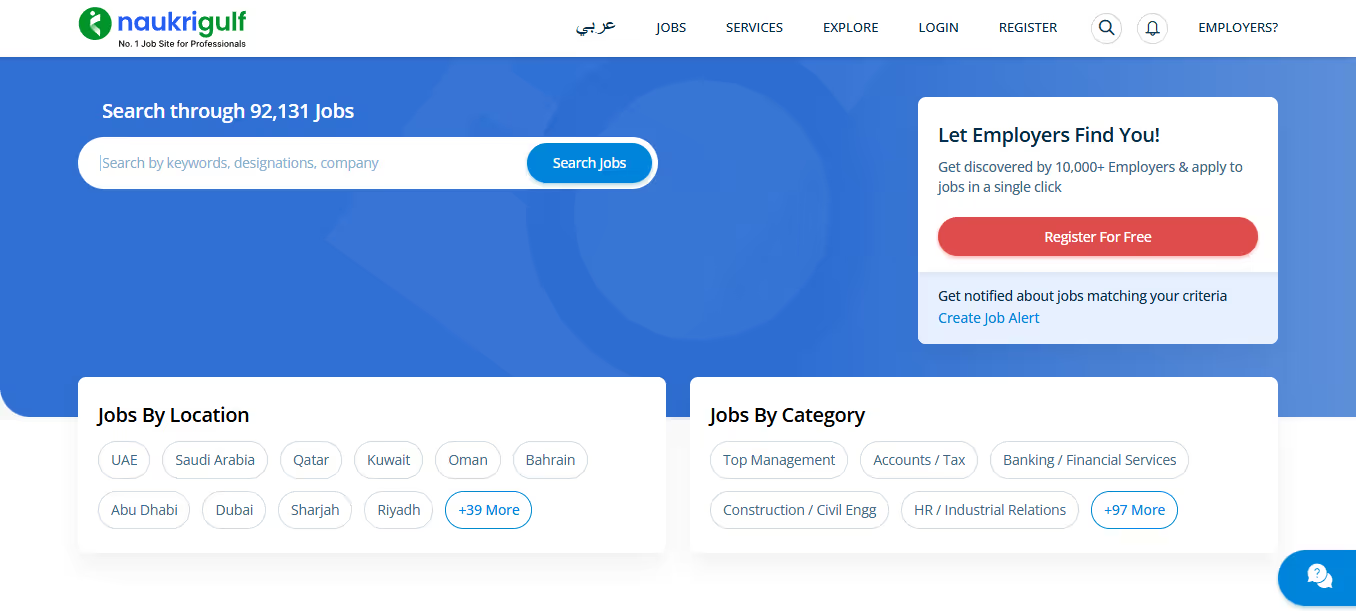
Naukri Gulf is part of a well-known network of job platforms serving the Gulf region. Its advanced search filters and regularly updated candidate profiles are useful for companies seeking professionals with specific expertise. It is often used to fill specialist roles and ensures access to a large pool of qualified candidates.
10. Expatriates.com

Expatriates.com is a classifieds platform frequently used in Saudi Arabia. Companies looking to hire expatriate workers based in the KSA often post roles in the job section. Job seekers can browse listings by industry and experience level.
11. Google Jobs
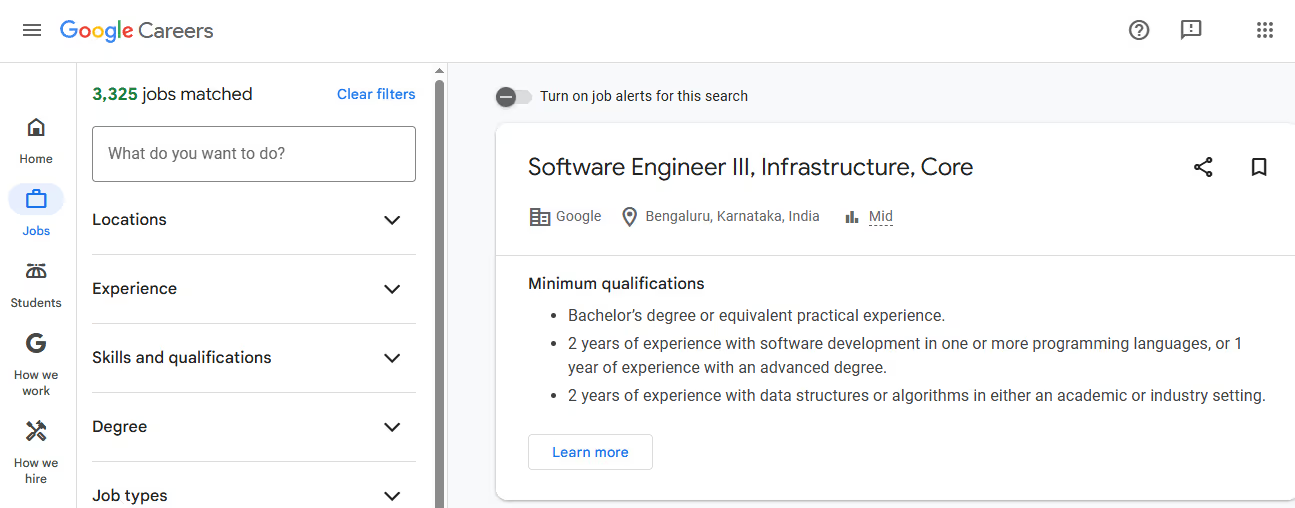
Google Jobs is a job search feature integrated into Google’s search engine. It gathers listings from various recruitment websites and presents them in search results. It is increasingly used in Saudi Arabia due to the ease of finding job listings and the visibility it offers to employers.
12. Laimoon

Laimoon is a job aggregator that brings listings from multiple sources into a single platform. It helps employers increase the visibility of their vacancies. The site is user-friendly and supports both general and specialist hiring.
Enhancing Recruitment Through Digital Platforms in Saudi Arabia
These platforms support hiring in Saudi Arabia by connecting employers with diverse talent and helping professionals find roles that match their skills. Their continued growth reflects the Kingdom’s broader goals around digital transformation and workforce development.
Related Reading
Understanding Saudi Arabia's Labour Laws: What You Need to Know
.avif)
The Labour Law issued by Royal Decree M/51 in 2005 is the primary legislation governing employment in Saudi Arabia. An update issued in August 2024, which took effect in February 2025, introduced changes particularly affecting outsourcing and maritime employment, including:
- Revised definitions
- Clarified employer responsibilities
- Enhanced protections for workers
These changes are intended to create clearer and fairer workplace standards.
What’s Changing in Saudi Arabia’s Labour Market?
Saudi Arabia’s labour landscape has recently evolved as the Kingdom updates its employment practices to better align with international frameworks. These reforms apply to Saudi nationals and expatriate workers, who play an important role in the country’s economy.
How Do the New Changes Affect Job Mobility?
Reforms to labour mobility represent a significant change in employment policy. Employees can now change jobs without employer consent once their contract has ended. They can also resign mid-contract, provided they have worked in the Kingdom for at least a year and give 90 days' notice.
An online platform enables workers to look for new jobs, request transfers, and notify current employers, making the process more transparent.
What are the New Working Conditions?
The standard working week is limited to 48 hours (eight hours per day), reduced to six hours per day for Muslim employees during Ramadan. Employees are entitled to a 30-minute break after five hours of work and one full rest day each week, typically on Fridays. Overtime is paid 1.5 times the regular rate, unless agreed to be taken as time off in lieu.
What Are the New Rules for Expatriate Workers?
Around two-thirds of Saudi Arabia’s workforce are expatriate workers, who must be employed under written, fixed-term contracts. Employers are responsible for obtaining and renewing the necessary work permits (Iqama) on their behalf. They may work only in roles specified on their permits and must undergo medical examinations.
Not all workers are covered by the Labour Law. Domestic workers, along with some seasonal or agricultural workers, are exempt.
What is Saudization?
To increase local employment, the Saudization policy requires companies to meet specific staffing ratios between Saudi nationals and expatriates, depending on the business sector and the organisation’s size. Companies that do not meet these quotas may face restrictions on visa issuance and employee mobility, while those in compliance may gain certain administrative benefits or access to government support.
What are the New Payment Standards?
- Minimum Wage: The minimum wage for Saudi nationals in the private sector is SAR 4,000. There is no set minimum wage for expatriate workers, although employers must comply with the terms stated in their contracts.
- Payment Standards: Salaries must be paid monthly in Saudi Riyals (SAR). The Wage Protection System monitors compliance and flags delayed payments.
- Deductions: Permitted deductions include GOSI (social insurance), approved fines, and loan repayments made with the employee’s written consent. Unauthorised deductions are not permitted.
- End-of-Service Benefits: All employees are entitled to end-of-service benefits upon completing their contract, in certain resignation cases, or upon termination.
A Regional Approach to Modern Workforce Management
Transform your HR operations with Cercli, which is aligned with the UAE’s vision for business excellence. It is the only platform built specifically for MENA businesses that unifies workforce management needs in one powerful system. Manage your entire team, whether local or distributed across 160+ countries, with our comprehensive solution that handles multi-currency payroll, leave management, onboarding, and compliance documentation tailored to the unique requirements of the MENA region.
Whether you're managing a growing team of 25 or coordinating 500+ employees across multiple countries, Cercli provides the localised expertise and streamlined processes that MENA businesses need to scale confidently and manage remote teams effectively. Experience the only HR platform truly designed for how you do business in the Middle East. Schedule a demonstration today to speak with our team about our global HR system.
Related Reading
- How To Calculate Salary Per Month In UAE
- How To Register WPS In UAE
- Payroll Process In UAE
- How To Hire Employees In Dubai
- How To Calculate Public Holiday Pay In UAE
5 Best Tips For Reaching The Best Talent In Saudi Arabia

1. Provide Career Development Opportunities to Support Saudi Talent
To attract top talent in Saudi Arabia, employers should offer clear career paths that support employee development. Although Saudi Arabia’s growing economy suggests opportunities for advancement, these are not always assured. In some cases, organisations may lack the structure to support employee ambitions.
Employers should introduce programmes that support skill development and provide opportunities for advancement within the organisation. Clear career pathways, which clarify the steps required for progression and expected timelines, can also help attract skilled candidates.
2. What Attracts Top Talent in Saudi Arabia
Young Saudis are often drawn to employers with a strong reputation for supporting employee development:
- Organisations that support professional growth
- Invest in their people
- Provide meaningful benefits
These qualities are increasingly valued as more Saudi millennials enter the workforce. They also seek roles where they feel valued and challenged, without compromising work-life balance or career aspirations.
3. Strengthen Your Online Presence to Attract Talent in Saudi Arabia
Companies in Saudi Arabia should strengthen their employer branding. This includes building a clear online presence that communicates the company’s mission and values, highlights career opportunities, and reflects a positive workplace culture.
According to GASTAT’s 2020 statistical report, young Saudis aged 15–34 comprise 36.7% of the population and are highly active on social media platforms. This enables businesses to engage with this group through targeted digital channels.
Social media platforms provide a cost-effective way to reach potential candidates with relevant content. They can also support wider recruitment strategies by communicating your employer value proposition (EVP) and workplace culture.
4. Develop a Clear Employer Value Proposition (EVP)
Companies in Saudi Arabia should clearly define what distinguishes them by developing an Employer Value Proposition tailored to the local workforce. Consider writing job descriptions targeting Saudi nationals, ensuring roles align with their skills and professional interests.
A strong EVP typically includes three key elements:
- A competitive salary
- A supportive work environment that encourages career growth
- Flexible work arrangements, including part-time roles and remote options
5. Support Vocational Training Initiatives
Vocational training initiatives can be valuable in attracting suitable talent to meet Vision 2030's goals. Young professionals, whether expatriates or Saudi nationals, are eager to learn and value employers who support the development of practical, work-based skills.
Supporting vocational training helps businesses attract and retain talent, particularly among young professionals in Saudi Arabia. Such programmes can enhance productivity and improve employee satisfaction, contributing to stronger recruitment and retention outcomes.
Related Reading
- How To Calculate Salary Per Day In UAE
- Unpaid Leave UAE
- Leave Salary Calculation In UAE
- HR Duties And Responsibilities In UAE
- Hiring Process in Middle East
- Saudi Labor Law
- Withholding Tax Saudi Arabia
- Employee Benefits in Saudi Arabia
- Egyptian Labor Law
Book a Demo to Speak with Our Team about Our Global HR System
Cercli’s global HR system assists MENA businesses in managing compliance with local regulations, allowing you to focus on finding the right talent for your organisation, rather than dealing with legalities.










